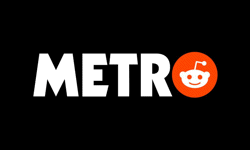As the inquiry into the culture, practices and ethics of the media headed by Lord Justice Leveson begins, press regulation will be under intense scrutiny.
More examples of the “black arts” of Fleet Street are likely to come to light as the Leveson inquiry interrogates witnesses and the police hacking investigation continues.
All at a time when the Culture, Media and Sport Select Committee is investigating phone hacking and claims of a News International cover-up.
When the rotten roof of the News of the World finally caved in, it also brought down the reputation of the press and its self-regulating watchdog, the Press Complaints Commission.
The PCC was savaged by politicians. Prime Minister David Cameron said “the way the press is regulated today is not working”. Deputy PM Nick Clegg said the Commission had “failed as a watchdog” and Labour leader Ed Miliband described it as a "toothless poodle".
In August, it was announced that PCC chair Baroness Peta Buscombe would not be reapplying for her job once her term ends in the New Year.
Self-regulation had already suffered a severe blow when Richard Desmond pulled his Express newspapers and Northern & Shell magazines out of the jurisdiction of the PCC earlier this year.
The newspaper industry knows it has to give something on regulation to satisfy the politicians and critics who are on the warpath against the PCC.
The question is how much should it give? Can the industry bolster up the beleaguered Commission or is it facing a shift away from self-regulation to greater government control?
Princess Diana and the paparazzi
The press has been here before. There was a huge outcry following the death of Princess Diana in August 1997 at the way she was hounded by the paparazzi.
Changes were made to the Code of Practice and promises were made about not using “pap” pictures. The then PCC chairman Lord Wakeham proclaimed that the revised Code was now the “toughest in Europe”.
One problem for those wanting tighter sanctions against the press is that many journalists and publishers feel they have done nothing wrong and have nothing to do with the kind of rogue reporting associated with the News of the World.
Bob Satchwell, executive director of the Society of Editors, says: “If we are to avoid the equivalent of the Dangerous Dogs Act, this must include recognition that the vast majority of journalists have not been breaking the law, nor have they gone into ethical meltdown.”
Satchwell claims there are three options facing the industry over regulation:
* The PCC is wonderful and nothing needs changing.
* The PCC is not up to the job of regulating the industry and statutory regulation is required.
* The PCC is doing a lot of good things but needs changes.
He says: “The Society of Editors will seek to move to improve self-regulation without sacrificing the PCC’s valuable work.”
One of the changes Satchwell supports is for editors to give the PCC more prominence in their own titles. “Editors respect the PCC and don’t treat it with contempt but I have always felt editors do need to look at the value and visibility of the PCC and its judgments and pronouncements.
“If politicians and members of the public who have not used the PCC could know more about how it works and editors make the decisions of the PCC more visible and flag up its work, many of the issues would go away.
“There would be a different view of sanctions if all papers made the decisions of the PCC and its work more visible.”
Satchwell suggests adjudications could be “badged” with a PCC logo to make them stand out. He also believes the Commission could include someone, possibly a lawyer, who could be charged with investigating allegations of unethical press behaviour.
As for fining rogue publications, Satchwell says: “The difficulty with fines is the press is so diverse. A fine could kill off a small, independent weekly. If fines or compensation are involved, it will inevitably bring in lawyers.”
He also claims: “There is a lot of misinformation about the lack of independence of the PCC because editors sit on it. Other organisations are closed shops, like the law and medicine. You cannot licence journalists, journalism is not a closed shop.”
Satchwell adds: “The Government cannot impose a system of self-regulation. Either the press is free or it is not. It can’t be a free press because it’s a press you approve of. It should have the freedom to make mistakes.”
He also has a bash back at some critics of the press. “Editors don’t need people like disgraced film stars, ex-F1 bosses, footballers, or politicians, to tell us what our ethics should be.”
The question of sanctions
Martin Moore, director of the Media Standards Trust, which has been calling for the reform of the PCC, says there is not an easy answer to the question of what sanctions could be imposed on the press for bad behaviour.
“I don’t think there is one simple answer. I think that sanctions should be targeted at the relevant offence by the relevant authority.
“Therefore, in the case of illegally gathering personal information, it makes sense to increase the sanction for breach of Section 55 of the Data Protection Act (the one that would apply to phone hacking). As the last two information commissioners have said, there has to be an adequate punishment for infringement or there is little disincentive not to breach the law, and little incentive for the police to police it.
“In the case of a press regulator - if there is a regulator, since I think there is a model of reform that has no media regulator, but reformed media law - it makes sense for there to be some sort of sanction, or else it is not regulation but mediation.
“One of the reasons the current system only works for minor infringements of the code is because the PCC effectively has no sanction. The upheld adjudication, which does not make editors quake in their boots, is used extremely rarely - because it is the only ‘punishment’ the PCC has. Yet even this cannot be imposed.”
In its 2010 suggestions for reform of the PCC, the Trust proposed the Commission could tell a newspaper it had to publish an apology that was equivalent to, for example, £5,000 of advertising space.
According to Moore, the newspaper would still have the freedom to decide where to put the adjudication, as long as it equated to £5,000.
“This would have the benefit of having a clear economic value, without jeopardising the freedom of any newspaper to determine the use of their own editorial space,” he says.
Moore adds: “Over 80% of the public, however, think a regulator should have the power to fine a newspaper, according to the Ipsos-MORI poll we commissioned in 2010. Though it's difficult, within a voluntary system of self-regulation, to get participants to agree to stiff fines, unless the regulator does have the power to fine, it is hard to see how news outlets - or the public - will take it seriously.”
The National Union of Journalists is campaigning for the adoption of a “conscience clause” in journalists’ contracts which would protect them from being sacked if they refused to breach the code of ethical conduct.
NUJ general secretary Michelle Stanistreet says: “Central to the development of an ethical environment for modern journalism must be a guarantee that journalists who uphold professional standards will be protected against management pressure to chase circulation by behaving unethically.”
Threat to press freedom
Apart from the thorny problem of sanctions, there is the question of how to make the PCC more independent of the industry without it becoming a creature of the state.
The Observer’s media columnist Peter Preston argues: "Messrs Cameron and Miliband appear to want a replacement for the PCC whose independent members are chosen by an equally independent nominating committee buried somewhere in the depths of Whitehall.
“Let's be straightforward about this. It's not self-regulation at all. It is effectively statutory regulation, rule by whoever the government of the day says is in regulatory charge."
Roy Greenslade wrote in the London Evening Standard: "I fear that the call for an 'independent' regulator is a cloak for a statutory regulator. But it would be a negation of both the concept and practice of press freedom. We would find ourselves in the company of some of the world's most repressive regimes. This is a seminal moment in the history the British press. We must clean up our act, of course, but we must ensure the brush stays in our hands.”
Another problem with imposing sanctions is that journalists are unlicensed and can’t be struck off like doctors and lawyers. Anyone in the UK can be a journalist and anyone can launch a newspaper, magazine, website or blog.
Also, how do you get every publication to sign-up for self-regulation, from Express Newspapers to Private Eye?
The Daily Mail’s Andrew Alexander describes regulating the press as “like grappling with a blancmange".
The likelihood is the newspaper industry will rally around the Press Complaints Commission, which has advertised for a new chair to replace Baroness Buscombe, by offering changes they hope will be seen as beefing up self-regulation.
But the press will only be prepared to concede so much. Otherwise newspapers will do what they always do when they think their independence is under threat. They’ll put the wagons in a circle and start firing back at the encircling politicians.










